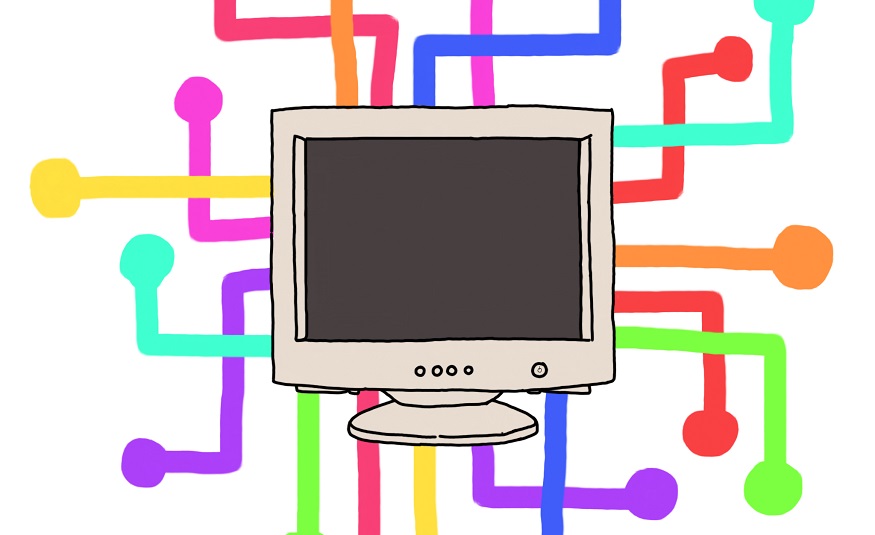Free as in Speech, Not as in Beer
When Edward Snowden revealed that the National Security Agency (NSA) was spying on Americans’ Internet communications, outrage quickly faded to apathy. After all, what could be done about it? And it wasn’t like people were getting publicly executed for sharing anti-government minion memes or anything. In fact, the effects weren’t noticeable at all. Although, with much fanfare, Section 215 of the Patriot Act—the section that had to do with phone communication, not the Internet—has expired, the government’s web surveillance quietly continues, helped along by companies like Microsoft, which, as it admits in its own Terms of Service, watches Windows 10 users’ every move.
Luckily, there is (at least to some degree) a way to protect yourself.
Back in 1971, when computers were first being created, a young software engineer named Richard Stallman arrived at MIT to develop an operating system for one of the computers of the day. “I became part of a software-sharing community,” he wrote in an essay published in the book Open Sources. “If you saw someone using an unfamiliar and interesting program, you could always ask to see the source code.”
Later, as the project became outdated, Stallman grew disgusted at the turn the software community was taking. If he were to continue working as a programmer, he would have to move to a company that actively discouraged sharing. Workers would have to sign nondisclosure agreements, and any unauthorized sharing would be demonized as “piracy.” Stallman wanted to bring back the community environment he had once had the chance to enjoy, so he began working on GNU, an operating system that followed the tenets of what he called “free software.”
Free software sometimes costs money, but that’s not the point; Stallman has described it as “free as in free speech, not as in free beer.” It grants users four specific freedoms: to run the program, to edit the program’s source code, to share exact copies, and to distribute copies of any modified versions of the program. If you’re not a programmer, you might not care about whether you get to see the source code of the software you’re using, but you’ll still feel the effects. When independent engineers review the code, developers can’t install hidden backdoors and spyware, like Spotify, which looks at what you post and like on Facebook, or Apple, which looks at your files without your permission.
If you literally do not care about privacy, there’s still an advantage to using free software. GNU/Linux, the operating system Stallman helped develop, is more convenient to the average user than Windows or Mac. Most versions are free (as in beer) too, as are most compatible apps, and run much more quickly than Windows. GNU/Linux is also more reliable, can run on a variety of computers, and defends itself well against viruses. It’s also more aesthetically pleasing; where Windows is clunky and bright, Linux is streamlined and simple.
Free software has a lot in common with open-source software, which is also meant to be shared and modified, but does not necessarily meet all the same criteria necessary to be free software. As a result, the free software movement has tried to distance itself from the term “open source,” claiming that the open-source community cares less about ethics and more about practicality. Open-source advocates ignore the “freedom” side of the issue, claiming that free or open-source software just works better all the time. The reality is that sometimes it doesn’t, and where open-source supporters would be forced to just give up, free software developers would try to improve the software so that users can use a good tool while still protecting their freedom.
This is an issue where free software supporters can get a little too dogmatic. In order for a version of GNU/Linux to be considered “fully free,” not only can it not contain any proprietary software, if you choose to install some, it has to refuse to run it. I tried Trisquel, a fully free GNU/Linux distribution, for a while. It was beautiful and streamlined. It ran smoothly, but the Internet wouldn’t work because the wireless driver on my laptop didn’t measure up to their standards.
There are some versions that aren’t quite free, in that they let you run proprietary software if you want to. Purists claim that this violates your freedom, but it’s a nice compromise when you, for whatever reason, have to use a proprietary program like Photoshop or Word. Ubuntu and Mint are two of these types of systems, both of which have a clean look and feel, run quickly (though not as fast as Trisquel), and are easy to understand. They may not be ideologically pure, but they’re a nice compromise for those who want the security, reliability, and freedom of free software without having to buy the right hardware or give up their favorite programs.
Free software is crucial to protecting users’ rights, and the peer-review-style development process often means it’s better than the alternatives. I’m going to be switching to a fully free OS as soon as I decide which one to choose. You should, too.






